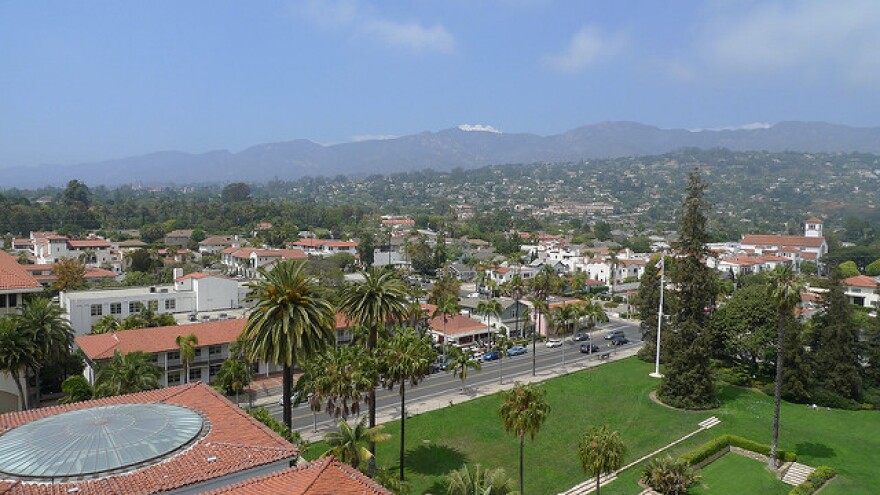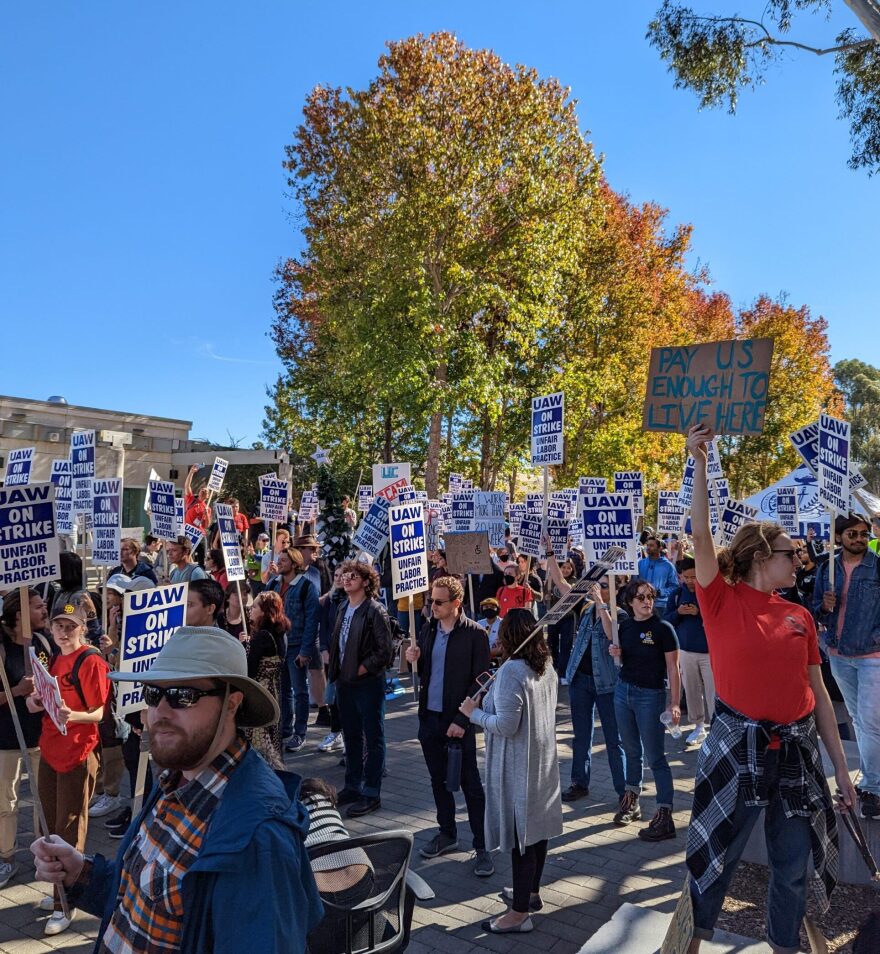About 48,000 academic workers employed by the University of California system are striking this week, demanding better pay and benefits. About 3,000 of those workers are striking at UC Santa Barbara, one of the ten campuses in the UC system.
The strikers are not adjunct or tenured professors. The group includes postdoctoral scholars, researchers funded by fellowships, tutors, graders and more. These kinds of workers generally have lower wages, less benefits and less stability than university faculty.
“We are all living and working in the same communities, and we're all dealing with the same problems," said Evan Plunkett, a postdoctoral scholar and the unit chair for postdocs at UC Santa Barbara.
The academic workers are unionized under the United Auto Workers (UAW). Their demands include wage increases, healthcare benefits, childcare allowances, public transit passes and more.
They also have a range of grievances against the UC system. Plunkett said one example is that UC bargainers have made it difficult to access key information for the bargaining process, such as how the university system calculates and distributes health insurance costs.
“That information is critical in our ability to accurately cost both our own proposals and evaluate statements," Plunkett said. "It's a pattern of behavior of the UC failing to engage with us on these core issues.”
The University of California declined an interview with KCBX News, but its Office of the President said in a statement that they “strongly disagree” with the union’s allegations that it has acted in bad faith — or unlawfully — during the bargaining process.
They said they believe the best forward is through a third-party mediator and that UC continues to “negotiate in good faith,” maintaining a “spirit of flexibility” to reach a fair conclusion.

Plunkett said a fair outcome would improve these workers’ livelihoods enough to continue doing essential functions at UC campuses like Santa Barbara.
"The rent [in Santa Barbara] is pretty high, and has been going up pretty consistently. Graduate students making $24,000 a year doing the essential work that keeps UCSB running deserve to be here," Plunkett said.
The UCSB strikers have received public support from some academic departments at the university, like the Chicana and Chicano Studies department who issued a public statement of solidarity on UCSB’s website.
Plunkett said besides the union’s material demands, he also feels it is about respect.
“Our goal is a more equitable academia. Our members told us what they need in order to be able to be here, continuing to help make the University of California system strong, equitable and have a robust teaching and research apparatus — and that's the goal," Plunkett said.
University of California representatives said they’ve already reached many tentative agreements and point to an online fact sheet for details on current negotiation. They also say they’re working to “mitigate the impact of any strike activity” and that campuses “will be prepared for contingencies should a strike interfere with the conclusion of the academic term.”
UC Santa Barbara did not respond to requests for comment separate from the systemwide UC representatives.






